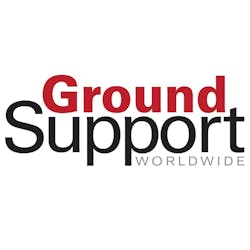
Lufthansa is bringing COVID-19 testing to the airport. Currently being offered by the airline at a handful of German airports, Lufthansa is utilizing a polymerase chain reaction (PCR) test to certify departing and arriving passengers are negative for the coronavirus.
Bjoern Becker, senior director product management ground and digital, Lufthansa, said Tuesday during a virtual press conference, titled Safe Travels with Lufthansa Group in Times of COVID-19, from the outset of the pandemic, the airline knew testing would be key to not only returning air travel back to normal, but getting the virus at large under control.
“We said we want to focus on testing and build up test facilities for our guests that make it easy for them to access,” Becker said. “We integrated it into the experience and it is a fully digitalized service.”
When arriving to Germany on a Lufthansa flight, passengers will receive a flyer with links to a dedicated website allowing them to schedule a time and location for the test through the Lufthansa app. Currently, those arriving to Germany must undergo a 14-day quarantine, but can be released early with a negative test result. Passengers who test negative for COVID-19 will also receive a digital certificate from Lufthansa, allowing them to travel freely to countries that require negative tests to enter.
“For example, if you’re going to China, our gate crew knows how to check the certificate,” Becker said. “Our aim was our passenger don’t have to hassle with that. They don’t need to worry too much about that. We make it as easy as possible.”
For departing passengers, the process works similarly but they can get a test prior to their flight at their departing airport. PCR tests can take as long as 24 hours to get results, although Becker said that on average results are had between two and four hours. For those willing to wait, they can arrive early at the airport, receive the test then wait in the lounge for the results before their flight. Otherwise, Becker said, it is advisable to go a day early to receive the test.
The PCR tests are free, but Becker said he sees a future where premium passengers can pay to get expedited test results.
The airport testing centers are also open to people not planning to fly and at Lufthansa’s testing center in Frankfurt, the airline has the capacity to run over 20,000 tests a day, Becker added.
Lufthansa also has testing centers at the Munich Airport. Tests are conducted by CENTOGENE, a rare disease and genetic testing company, who also hosts testing sites off the airports that Lufthansa passengers can utilize through the two entities’ collaboration.
Becker said testing before flights also can give passengers ease of mind as they fly, knowing that everyone on board the plane has been cleared of the virus.
“It’s the most protected environment you can be in,” he said.
Lufthansa is also sharing the data they collect with the local governments, helping with both contract tracing passengers who later fall ill, and being able to show where upticks in the virus are forming, what countries are most at risk and where ill travelers are arriving from.
Becker said that Lufthansa wants to expand their testing capabilities to more countries, such as the United States. However, the challenge in doing so is twofold.
Lufthansa’s main concern is having the capacity to perform the tests themselves. If 200 people need to leave for a flight, Lufthansa wants to be able to test all 200 of those people through their own means and not put a strain on a government’s outside testing.
“We don’t want to cannibalize the local or regional testing of a country,” Becker said.
The other issue is the time that PCR tests can take. It is not always realistic for people who need to fly immediately to wait hours for test results.
A solution to this problem that Lufthansa officials see is the rise of antigen tests, which can give results in minutes. However, antigen tests are only now hitting the market and no country currently recognizes them as a valid test as to whether an induvial has COVID-19.
Becker said he is hopeful though that antigen testing proves to be reliable and adopted by countries and allow those who are eager to get back into the skies the ability to.
About the Author
Walker Jaroch
Editor
Contact: Walker Jaroch
Editor | AMT
+1-920-568-8399
>> To download the AviationPros media kits, visit: Marketing Resource Center
>>Check out our aviation magazines: Ground Support Worldwide | Airport Business | Aircraft Maintenance Technology
